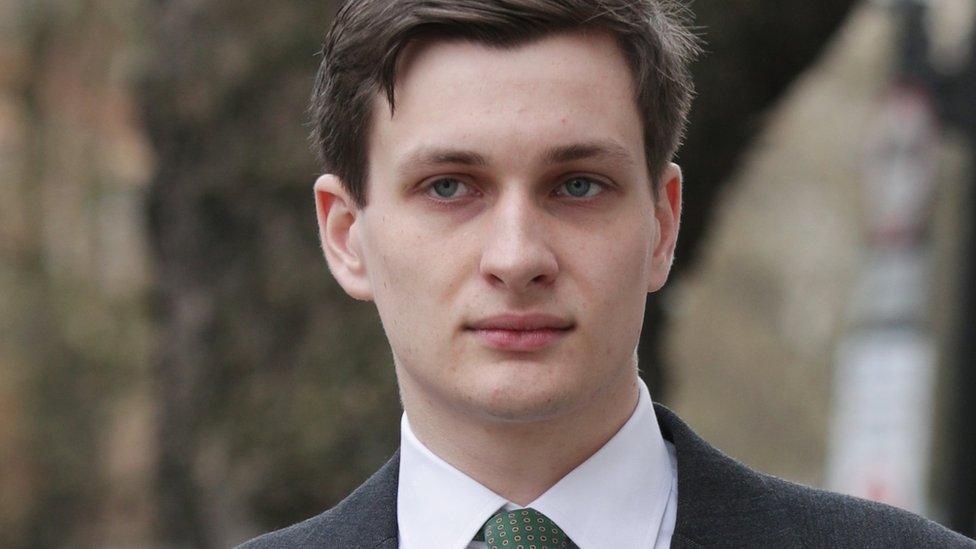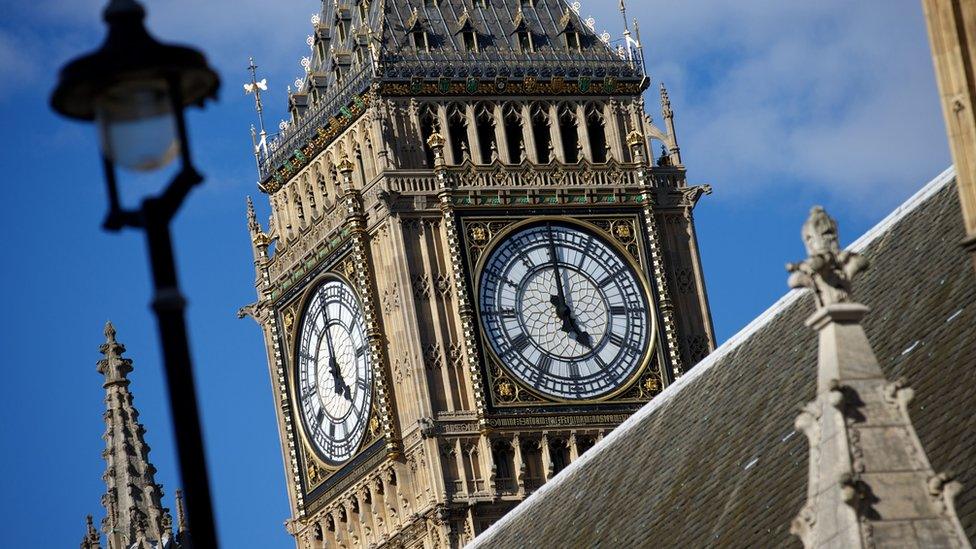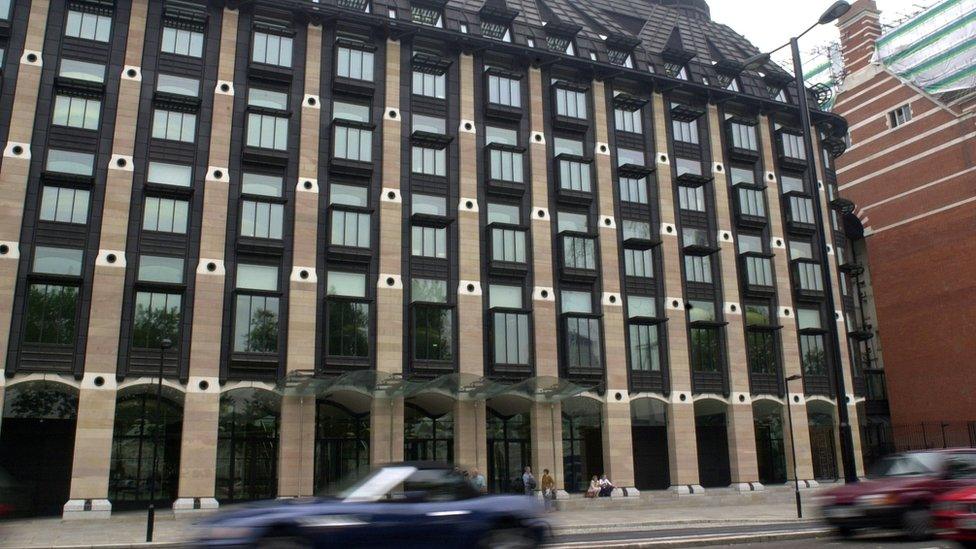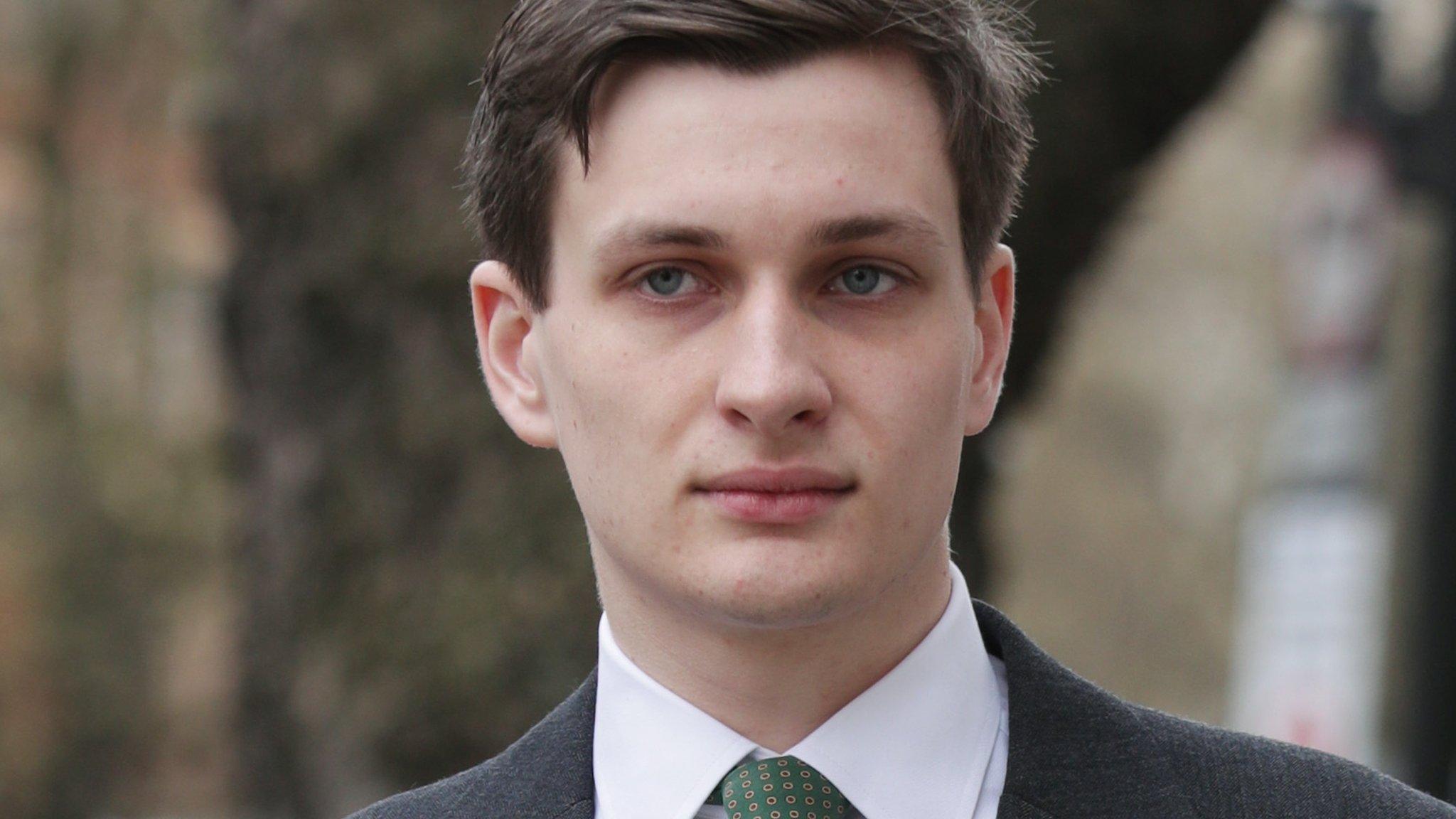Westminster rape trial: Samuel Armstrong 'victim gave story to press'
- Published

Samuel Armstrong has claimed what happened took place with "full consent"
A woman who claims she was raped by an MP's chief of staff in Westminster gave the story to journalists hours after the alleged attack, a jury has heard.
Samuel Armstrong, of Danbury, Essex, denies two charges of rape and two of sexual assault on 14 October 2016.
Southwark Crown Court heard the woman sent a message to her boyfriend.
"Keeping you in the loop. I've given it to Harry Cole who works for the Sun. It will either be in the Mail on Sunday or the Sun front page on Monday," it said.
Jurors were told the message was sent 15 hours after the alleged assault, and a later message said: "The media already knew so this is my way of controlling it to ensure I get a sympathetic writer."
'Wanted control'
When Sarah Forshaw QC, defending, asked the woman, a parliamentary worker in her 20s, about the messages, she insisted she did not sell the story and explained it had been a friend who spoke to the Sun.
She said: "I really didn't want my identity to come out and it was a state where I had absolutely no control in the event, so I wanted a little bit of control."
The court has heard claims the attack happened in the early hours in the Westminster office of South Thanet MP Craig Mackinlay after the woman fell asleep there after a night drinking.
The woman said Mr Armstrong, 24, of Copt Hill, called her a "bitch" and raped her twice after she turned down an invitation to go back to his flat in Clapham, south London.

It is claimed the attack happened in the Westminster office of South Thanet MP Craig Mackinlay
Ms Forshaw suggested the woman became distressed when she tried to leave Westminster after having consensual sex with Mr Armstrong.
"When it was over you were not upset with him at all, were you?" she asked.
But the woman answered: "Yes - I was completely confused and devastated in the truest sense of that word."
The woman admitted sending a request to Mr Armstrong to follow him on Twitter in September 2017 but said it was an accident.
Ms Forshaw suggested to the victim she had told a lie at the time, but once she had told it she couldn't take it back, and the woman told her she was "incorrect".
The defence lawyer also put it to her that everything that happened in Mr Mackinlay's office was with her consent, but the woman answered: "No, absolutely not."

Mr Armstrong's defence lawyer suggested the woman became distressed as she left
The court has heard the pair were at the sports and social bar on the evening of 13 October, before they went to the roof garden terrace to see Big Ben.
Jurors heard they later went to the leader's terrace in the Lords' office to drink wine, before taking a bottle back to Mr Mackinlay's office in the Norman Shaw building.
The court heard suggestions the pair mutually kissed as they danced to jazz music in the office, before they had consensual sex - a claim the woman denied.
She also denied a suggestion she had swept papers on to the floor so they could continue on a desk.
'Forced upon'
Ms Forshaw said to the woman: "Far from being unhappy during this sexual encounter, you and he were chatting during sex?"
The defence barrister asked the woman if she remembered Mr Armstrong saying something like "how does the size suit the lady?" - but the alleged victim replied "no".
Ms Forshaw added: "You said that it suited you well. Do you remember that?"
The woman again replied: "No."
Jurors heard from cleaner Vincent Ble who said the woman was "shaking and crying" when he saw her.
He said she held on to him while his manager called the police.
And the jury heard the phone call made on the parliamentary network in which the sobbing woman told an officer she was "forced upon", before she added: "I got taken back, I don't know.... and I've just had sex and I really, really didn't want to."
The trial continues.
- Published12 December 2017
